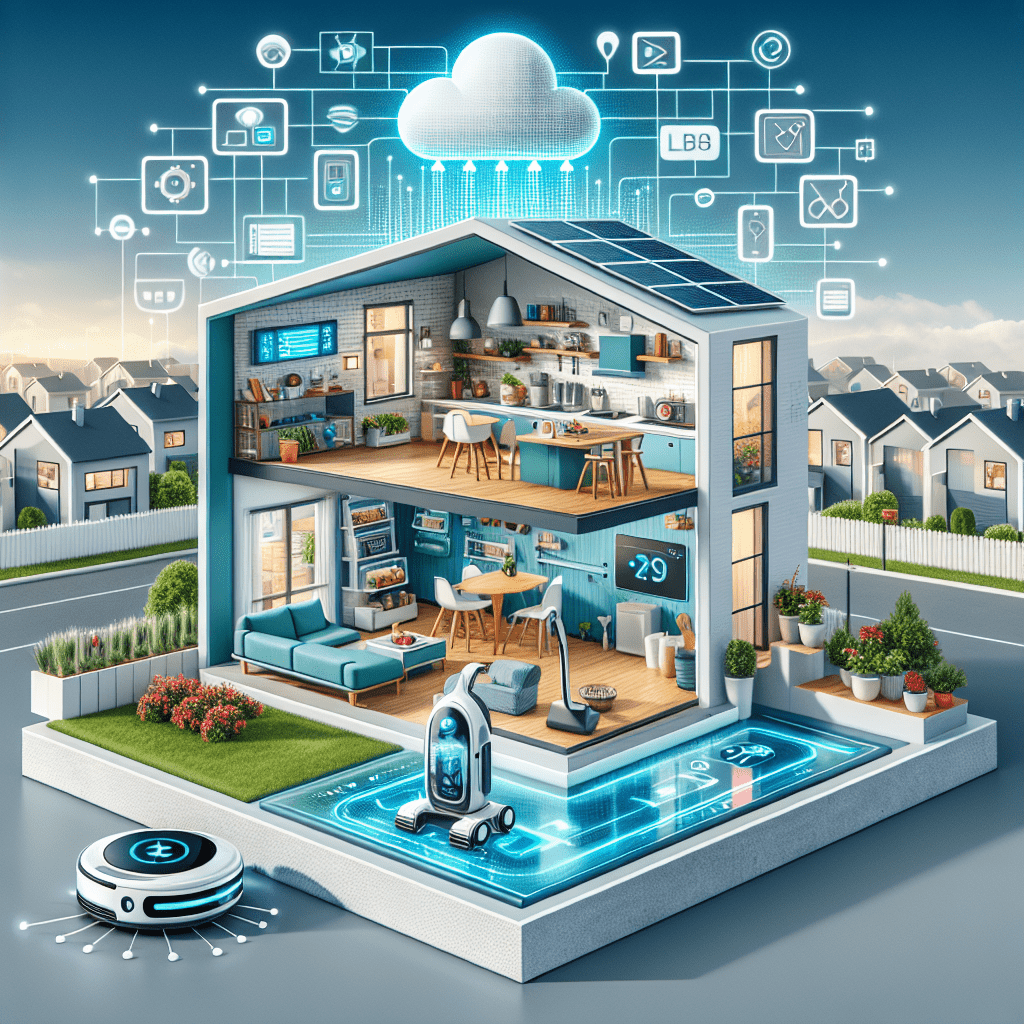In recent years, the concept of smart homes has been gaining popularity as advancements in artificial intelligence (AI) technology have made it increasingly accessible to everyday consumers. Smart homes use AI to automate and control various aspects of a home, such as lighting, temperature, security, and entertainment systems, creating a more efficient and comfortable living environment for residents.
AI-powered devices and systems are reshaping the way we interact with our homes, allowing us to control them remotely through smartphones and voice commands. From smart thermostats that learn your heating and cooling preferences to security cameras that can detect and alert you to potential threats, the possibilities for smart home technology are endless.
The Benefits of Smart Homes
There are numerous benefits to incorporating AI into your home. One of the most significant advantages is increased energy efficiency. Smart thermostats can automatically adjust the temperature based on your preferences and behavior, leading to lower energy bills and reduced carbon footprint. Additionally, smart lighting systems can be programmed to turn off when not in use, further saving energy and money.
Another benefit of smart homes is enhanced security. AI-powered security cameras and doorbell systems can monitor your home 24/7 and alert you to any suspicious activity. Some systems even have facial recognition technology, allowing you to easily keep track of who enters and exits your home.
Smart homes also provide increased convenience and comfort. Imagine being able to control your home’s temperature, lights, and entertainment systems with just your voice or a few taps on your smartphone. AI can learn your preferences and routines, making your home function seamlessly and effortlessly.
The Future of Smart Homes
As AI technology continues to evolve, the possibilities for smart homes are only going to expand. In the future, we can expect to see even more integration between different devices and systems, creating a truly interconnected and intelligent living space. From refrigerators that can automatically order groceries to robotic assistants that can perform household chores, the future of smart homes is filled with exciting possibilities.
Additionally, as more and more homes become equipped with AI technology, we can expect to see a growth in smart home ecosystems and platforms. These platforms will allow homeowners to easily manage and control all of their smart devices from one central hub, making it even easier to enjoy the benefits of a smart home.
Conclusion
The rise of smart homes powered by AI technology is transforming the way we live and interact with our living spaces. From increased energy efficiency to enhanced security and convenience, smart homes offer a multitude of benefits to homeowners. As AI technology continues to advance, we can expect to see even more exciting developments in the world of smart homes, making our lives easier and more connected than ever before.
FAQs
What is a smart home?
A smart home is a residential space that uses internet-connected devices to enable the remote monitoring and management of appliances and systems, such as lighting, heating, and security.
How does AI help make homes smarter?
AI technology allows smart home devices to learn and adapt to homeowners’ preferences and behaviors, creating a more personalized and efficient living environment.
Are smart homes secure?
While smart homes offer increased security features such as AI-powered cameras and doorbells, it is essential for homeowners to take precautions to protect their devices from potential cyber threats.
Quotes
“The future of smart homes is incredibly exciting, with AI technology revolutionizing the way we interact with our living spaces.” – John Smith, Smart Home Enthusiast
#Rise #Smart #Homes #Making #Living #Spaces #Smarter


